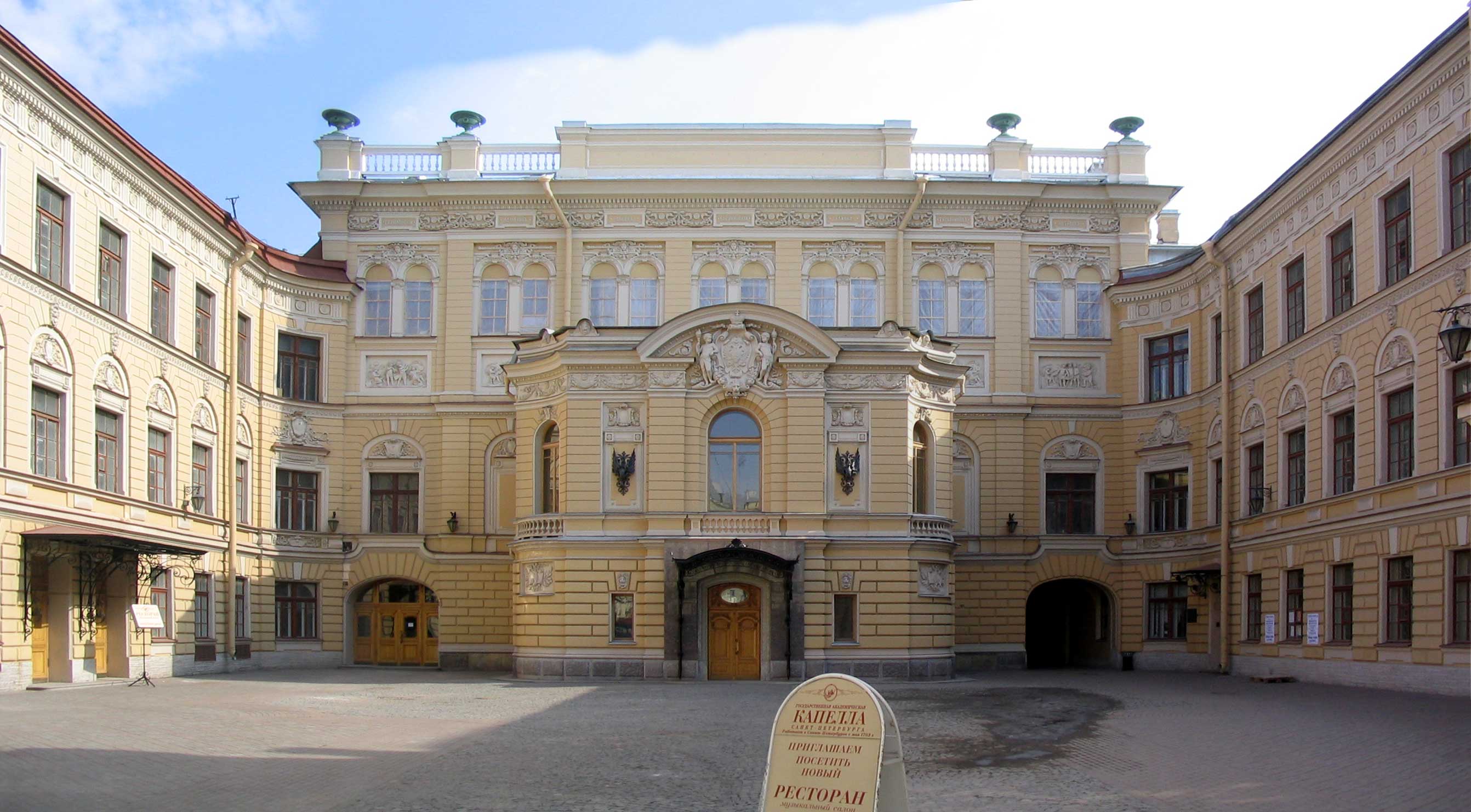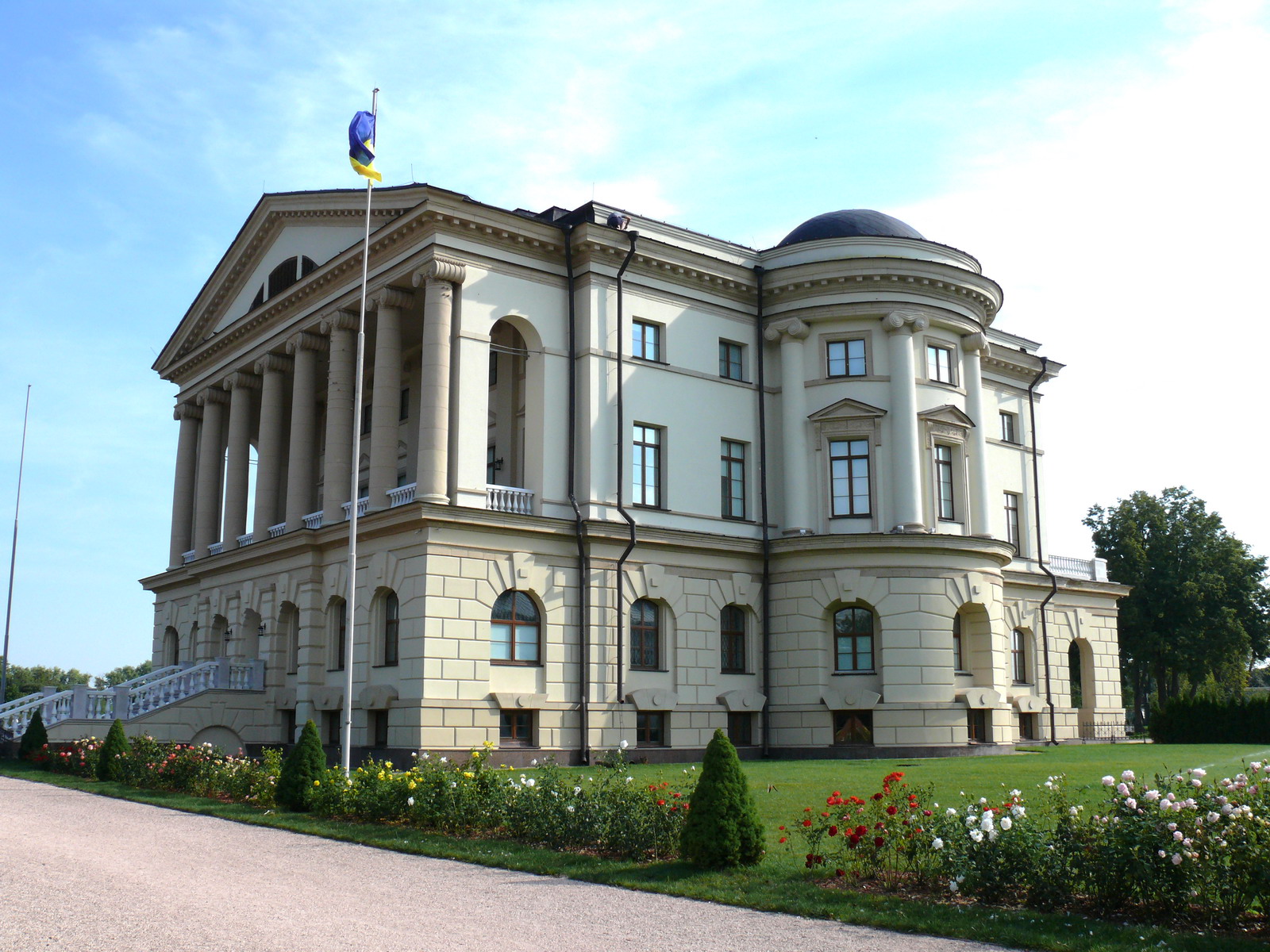|
Dmitry Bortniansky
Dmitry Stepanovich Bortniansky ; ; alternative transcriptions of names are ''Dmitri Bortnianskii'', and ''Bortnyansky'', group=n (28 October 1751 – ) was a Russian Imperial composer of Ukrainian Cossack origin. He was a composer, harpsichordist and conductor who served at the court of Catherine the Great. Bortniansky was critical to the musical history of both Ukraine and Russia, with both nations claiming him as their own. Bortniansky, who has been compared to Palestrina, is known today for his liturgical works and prolific contributions to the genre of choral concertos. He was one of the "Golden Three" of his era, alongside Artemy Vedel and Maxim Berezovsky. Bortniansky was so popular in the Russian Empire that his figure was represented in 1862 in the bronze monument of the Millennium of Russia in the Novgorod Kremlin. He composed in many different musical styles, including choral compositions in French, Italian, Latin, German and Church Slavonic. Biography Student Dm ... [...More Info...] [...Related Items...] OR: [Wikipedia] [Google] [Baidu] |
Mikhail Ivanovich Belsky
Mikhail Ivanovich Belsky (Russian: Михаил Иванович Бельский; 1753, St. Petersburg - 29 May 1794, St. Petersburg) was a Russian painter. Biography His father, Ivan Ivanovich Belsky, was a history painter and Academician at the Imperial Academy of Arts. @ the Russian Academy of Sciences. In 1770, the Academy awarded him a silver medal for his outstanding classwork. His primary instructors there were Anton Losenko and Dmitry Levitzky. [...More Info...] [...Related Items...] OR: [Wikipedia] [Google] [Baidu] |
French Language
French ( or ) is a Romance language of the Indo-European family. It descended from the Vulgar Latin of the Roman Empire, as did all Romance languages. French evolved from Gallo-Romance, the Latin spoken in Gaul, and more specifically in Northern Gaul. Its closest relatives are the other langues d'oïl—languages historically spoken in northern France and in southern Belgium, which French ( Francien) largely supplanted. French was also influenced by native Celtic languages of Northern Roman Gaul like Gallia Belgica and by the ( Germanic) Frankish language of the post-Roman Frankish invaders. Today, owing to France's past overseas expansion, there are numerous French-based creole languages, most notably Haitian Creole. A French-speaking person or nation may be referred to as Francophone in both English and French. French is an official language in 29 countries across multiple continents, most of which are members of the ''Organisation internationale de la Francophonie'' ... [...More Info...] [...Related Items...] OR: [Wikipedia] [Google] [Baidu] |
Saint Petersburg Court Chapel
The St. Petersburg State Academic Capella (russian: Государственная академическая капелла Санкт-Петербурга) (also: Glinka State Academic Capella), is the oldest active Russian professional musical institution with a history dating back to 1479. It is based in the city of Saint Petersburg. It has had various names over the years, including "St. Peterburg Court Chapel" (russian: Императорская Придворная певческая капелла) and the "Glinka State Choir of St. Petersburg". The institution currently consists of a choir, an orchestra, and has its own concert hall A concert hall is a cultural building with a stage that serves as a performance venue and an auditorium filled with seats. This list does not include other venues such as sports stadia, dramatic theatres or convention centres that may .... It also had an educational music college at one point, which is currently independent ... [...More Info...] [...Related Items...] OR: [Wikipedia] [Google] [Baidu] |
Tolstoy Family
The House of Tolstoy, or Tolstoi (russian: Толстой), is a family of Russian gentry that acceded to the high aristocracy of the Russian Empire. The name Tolstoy (Russian "Толстой") is itself derived from the Russian adjective "толстый" ("thick, stout, fat"). They are the descendants of Andrey Kharitonovich Tolstoy ("the Fat"), who moved from Chernigov to Moscow and served under Vasily II of Moscow in the 15th century. The "wild Tolstoys", as they were known in the high society of Imperial Russia, have left a lasting legacy in Russian politics, military history, literature, and fine arts. Origins The Tolstoys were a family of provincial Muscovite gentry who claimed their ancestry to a mythical Lithuanian nobleman named Indris stated by Pyotr Tolstoy as supposedly having arrived from the Holy Roman Empire to Chernigov in 1353, the very year when the city became part of Grand Duchy of Lithuania, together with his two sons Litvinos (or Litvonis, "Lithuanian") and ... [...More Info...] [...Related Items...] OR: [Wikipedia] [Google] [Baidu] |
Landlord
A landlord is the owner of a house, apartment, condominium, land, or real estate which is rented or leased to an individual or business, who is called a tenant (also a ''lessee'' or ''renter''). When a juristic person is in this position, the term landlord is used. Other terms include lessor and owner. The term landlady may be used for the female owners. The manager of a pub in the United Kingdom, strictly speaking a licensed victualler, is referred to as the landlord/landlady. In political economy it refers to the owner of natural resources alone (e.g., land, not buildings) from which an economic rent is the income received. History The concept of a landlord may be traced back to the feudal system of manoralism (seignorialism), where a landed estate is owned by a Lord of the Manor (mesne lords), usually members of the lower nobility which came to form the rank of knights in the high medieval period, holding their fief via subinfeudation, but in some cases the land may also ... [...More Info...] [...Related Items...] OR: [Wikipedia] [Google] [Baidu] |
Cossack Register
Registered Cossacks (, , pl, Kozacy rejestrowi) comprised special Cossack units of the Polish–Lithuanian Commonwealth army in the 16th and 17th centuries. Registered Cossacks became a military formation of the Commonwealth army beginning in 1572 soon after the Union of Lublin (1569), when most of the territory of modern Ukraine passed to the Crown of Poland. Registered Cossack formations were based on the Zaporozhian Cossacks who already lived on the lower reaches of the Dnieper River amidst the Pontic steppes as well as on self-defense formations within settlements in the region of modern Central and Southern Ukraine. History Origins The first recorded official plan for enlisting Cossack formations as a border service in Poland-Lithuania was brought to the State Council of the Grand Duchy of Lithuania in 1524 by Semen Polozovic and Kristof Kmitic. However, due to a lack of funds, the idea was not realized. The starosta of Cherkasy, Ostap Dashkevych, revived ... [...More Info...] [...Related Items...] OR: [Wikipedia] [Google] [Baidu] |
Kirill Razumovski
Count Kirill Grigoryevich Razumovski, anglicized as Cyril Grigoryevich Razumovski (russian: Кирилл Григорьевич Разумовский, uk, Кирило Григорович Розумовський ''Kyrylo Hryhorovych Rozumovsky''; 18 March 1728 – 1 January 1803) was a Russian Imperial statesman of Ukrainian Cossack descent, who served as the last Hetman of Zaporozhian Host on both sides of the Dnieper (from 1750 until 1764) and then as a Field marshal in the Russian Imperial Army. Razumovsky was the President of the St. Petersburg Imperial Academy of Sciences from 1746 until 1798. Biography Razumovsky was born to a family of low rank Cossack Hryhoriy Rozum in Lemeshi Russian Empire, Kiev Regiment on 18 March 1728.Putro, O. Kyrylo Rozumovsky (РОЗУМОВСЬКИЙ КИРИЛО ГРИГОРОВИЧ)'. Encyclopedia of History of Ukraine. The village Lemeshi where Razumovsky was born to this day stands in Chernihiv Raion, Chernihiv Oblast, Ukraine. F ... [...More Info...] [...Related Items...] OR: [Wikipedia] [Google] [Baidu] |
Cossack
The Cossacks , es, cosaco , et, Kasakad, cazacii , fi, Kasakat, cazacii , french: cosaques , hu, kozákok, cazacii , it, cosacchi , orv, коза́ки, pl, Kozacy , pt, cossacos , ro, cazaci , russian: казаки́ or , sk, kozáci , uk, козаки́ are a predominantly East Slavic Orthodox Christian people originating in the Pontic–Caspian steppe of Ukraine and southern Russia. Historically, they were a semi-nomadic and semi-militarized people, who, while under the nominal suzerainty of various Eastern European states at the time, were allowed a great degree of self-governance in exchange for military service. Although numerous linguistic and religious groups came together to form the Cossacks, most of them coalesced and became East Slavic-speaking Orthodox Christians. The Cossacks were particularly noted for holding democratic traditions. The rulers of the Polish-Lithuanian Commonwealth and Russian Empire endowed Cossacks with certain spe ... [...More Info...] [...Related Items...] OR: [Wikipedia] [Google] [Baidu] |
Małopolska
Lesser Poland, often known by its Polish name Małopolska ( la, Polonia Minor), is a historical region situated in southern and south-eastern Poland. Its capital and largest city is Kraków. Throughout centuries, Lesser Poland developed a separate culture featuring diverse architecture, folk costumes, dances, cuisine, traditions and a rare Lesser Polish dialect. The region is rich in historical landmarks, monuments, castles, natural scenery and UNESCO World Heritage Sites. The region should not be confused with the modern Lesser Poland Voivodeship, which covers only the southwestern part of Lesser Poland. Historical Lesser Poland was much larger than the current voivodeship that bears its name. It reached from Bielsko-Biała in the southwest as far as to Siedlce in the northeast. It consisted of the three voivodeships of Kraków, Sandomierz and Lublin. It comprised almost 60,000 km2 in area; today's population in this area is about 9,000,000 inhabitants. Its landscape ... [...More Info...] [...Related Items...] OR: [Wikipedia] [Google] [Baidu] |
Bartne
Bartne ', ( rue, Бортне, ''Bortne'', uk, Бортне, ''Bortne'') is a village in the administrative district of Gmina Sękowa, within Gorlice County, Lesser Poland Voivodeship, in southern Poland, close to the border with Slovakia. It lies approximately east of Sękowa, south-east of Gorlice, and south-east of the regional capital Kraków. The village has a population of 190. History The father of 18th century Classical composer Dmytro Bortniansky Dmitry Stepanovich Bortniansky ; ; alternative transcriptions of names are ''Dmitri Bortnianskii'', and ''Bortnyansky'', group=n (28 October 1751 – ) was a Russian Imperial composer of Ukrainian Cossack origin. He was a composer, harpsichordi ... was born in Bartne and emigrated to the Russian Empire for religious reasons. References Bartne {{Gorlice-geo-stub ... [...More Info...] [...Related Items...] OR: [Wikipedia] [Google] [Baidu] |
Church Slavonic Language
Church Slavonic (, , literally "Church-Slavonic language"), also known as Church Slavic, New Church Slavonic or New Church Slavic, is the conservative Slavic liturgical language used by the Eastern Orthodox Church in Belarus, Bosnia and Herzegovina, Bulgaria, North Macedonia, Montenegro, Poland, Ukraine, Russia, Serbia, the Czech Republic and Slovakia, Slovenia and Croatia. The language appears also in the services of the Russian Orthodox Church Outside of Russia, the American Carpatho-Russian Orthodox Diocese, and occasionally in the services of the Orthodox Church in America. In addition, Church Slavonic is used by some churches which consider themselves Orthodox but are not in communion with the Orthodox Church, such as the Montenegrin Orthodox Church and the Russian True Orthodox Church. The Russian Old Believers and the Co-Believers also use Church Slavonic. Church Slavonic is also used by Greek Catholic Churches in Slavic countries, for example the Croatian, Slovak ... [...More Info...] [...Related Items...] OR: [Wikipedia] [Google] [Baidu] |

.jpg)





